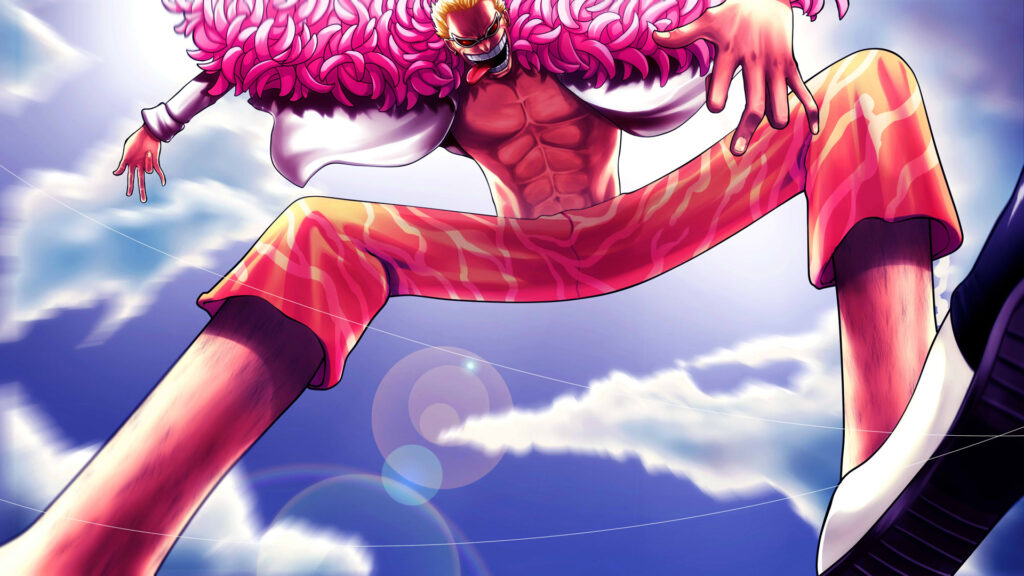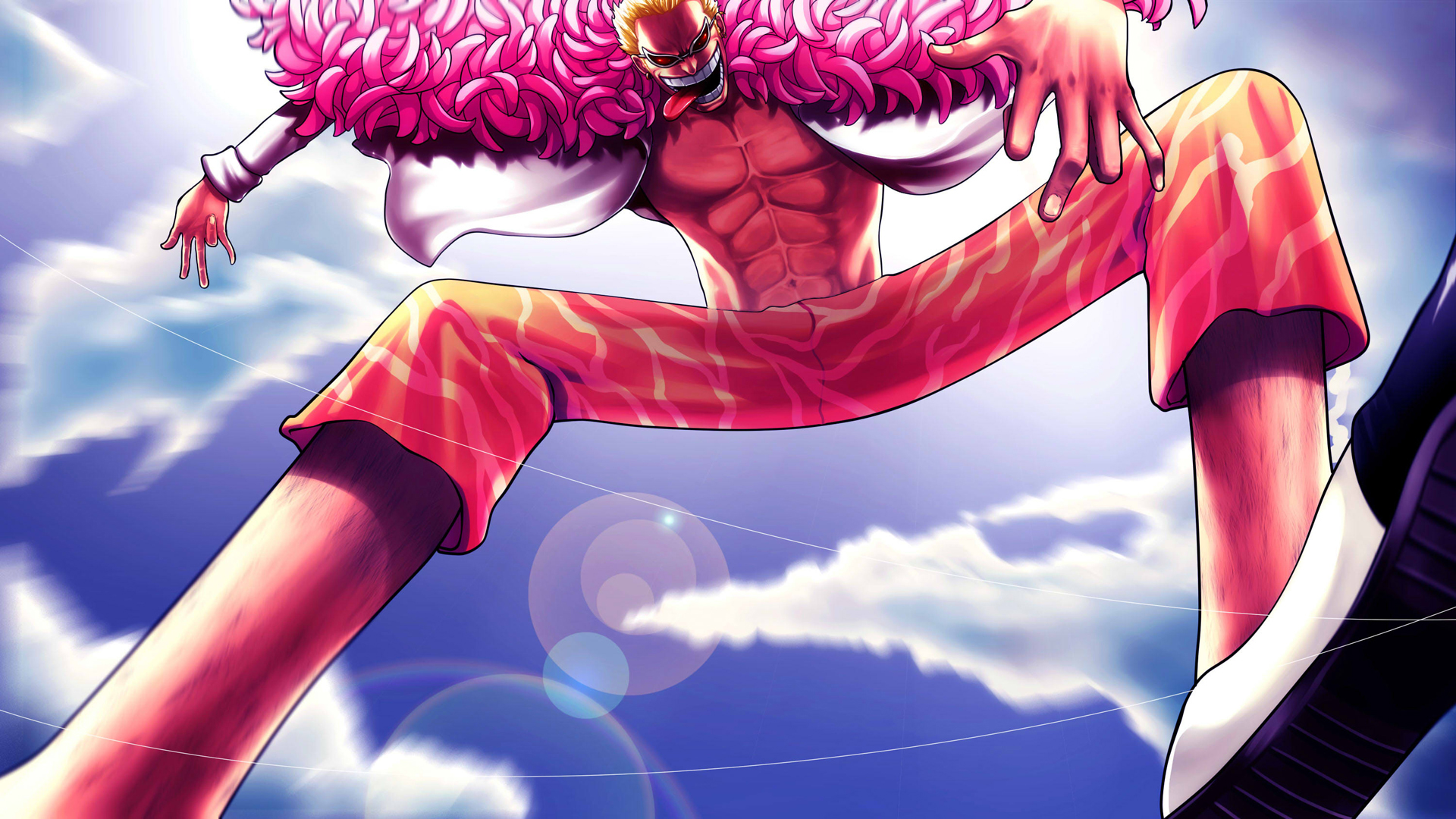
Doflamingo Don Quixote: Unraveling the Tyranny and Tragedy of a One Piece Antagonist
Doflamingo Don Quixote, often simply referred to as Doflamingo, stands as one of the most compelling and complex antagonists in Eiichiro Oda’s acclaimed manga and anime series, One Piece. His flamboyant appearance, cruel demeanor, and intricate backstory have cemented his place as a fan favorite, albeit one that inspires both fascination and revulsion. This article delves into the character of Doflamingo Don Quixote, exploring his rise to power, his twisted ideology, and the lasting impact he had on the world of One Piece. We will analyze how Doflamingo‘s past shaped his present, and why he remains such a memorable figure in the series. Understanding Doflamingo Don Quixote requires a close examination of his motivations, actions, and the context within which he operates. This analysis will shed light on the depths of his depravity and the nuances of his character.
The Descent into Darkness: Doflamingo’s Traumatic Childhood
Born into the World Nobles, also known as the Celestial Dragons, Doflamingo Don Quixote initially lived a life of privilege and luxury. However, his father, Don Quixote Homing, chose to renounce their status and live amongst ordinary people, seeking a more peaceful existence. This decision proved catastrophic for the family. The resentment of the commoners, fueled by centuries of oppression at the hands of the Celestial Dragons, led to unimaginable suffering. The Don Quixote family was hunted, tortured, and driven to the brink of starvation. This traumatic experience fundamentally altered Doflamingo, instilling in him a deep-seated hatred for both the World Nobles and the commoners who had wronged him.
The horrors he witnessed and endured during this period shaped his worldview. He developed a nihilistic perspective, believing that the world is inherently cruel and that only the strong survive. This belief system justified his future actions, allowing him to inflict pain and suffering on others without remorse. The loss of his mother and the subsequent desperate measures taken by his father further solidified his descent into darkness. This descent marked the beginning of Doflamingo‘s transformation into the ruthless tyrant he would become.
The Rise of a Tyrant: From Pirate to King
Fueled by vengeance and a desire to reclaim his lost status, Doflamingo embarked on a path of violence and conquest. He formed the Don Quixote Pirates, a formidable crew of skilled fighters and ruthless individuals. Through cunning manipulation, strategic alliances, and sheer brutality, he gradually amassed power and influence within the underworld. His connections to the black market, his control over the production and distribution of SMILE fruits (artificial Devil Fruits), and his ability to manipulate governments made him a force to be reckoned with.
His ultimate goal was to seize control of the kingdom of Dressrosa. Through a carefully orchestrated coup d’état, he overthrew King Riku Doldo III and established himself as the new ruler. Under his reign, Dressrosa became a twisted paradise, where citizens were forced to live in fear and oppression. Those who dared to oppose him were turned into toys, their memories erased and their lives controlled by Doflamingo. This period highlighted his capacity for cruelty and his willingness to exploit others for his own gain. The tyranny of Doflamingo Don Quixote in Dressrosa became a symbol of his overall malevolence.
The Devil Fruit Power: Ito Ito no Mi
Doflamingo’s power stems from the Ito Ito no Mi, a Paramecia-type Devil Fruit that grants him the ability to create and manipulate strings. These strings are incredibly versatile, allowing him to control people like puppets, create clones of himself, repair his internal organs, and even construct a massive birdcage that traps an entire island. He has mastered the use of his Devil Fruit to an astonishing degree, making him a formidable opponent in battle. The Ito Ito no Mi is not merely a source of power; it is an extension of Doflamingo’s manipulative nature, allowing him to control and dominate others with ease.
The Birdcage: A Symbol of Doflamingo’s Control
The Birdcage, a massive dome of razor-sharp strings that enveloped Dressrosa, serves as a potent symbol of Doflamingo’s absolute control. It not only isolated the island from the outside world but also instilled terror and despair among its inhabitants. The Birdcage forced the citizens to fight amongst themselves, turning them into pawns in Doflamingo’s twisted game. This act of cruelty demonstrated the depths of his depravity and his willingness to sacrifice innocent lives to achieve his goals. The Birdcage became synonymous with Doflamingo Don Quixote’s reign of terror.
The Defeat and its Aftermath
Ultimately, Doflamingo’s reign of terror came to an end at the hands of Monkey D. Luffy and the Straw Hat Pirates. After a grueling battle, Luffy unleashed his Gear Fourth transformation and delivered a decisive blow, shattering Doflamingo’s control over Dressrosa. His defeat marked the liberation of the island and the restoration of King Riku Doldo III to the throne. However, Doflamingo’s influence continued to linger, even after his imprisonment. His connections to the underworld and his knowledge of the world’s secrets made him a valuable asset to those who sought to destabilize the world order. His imprisonment in Impel Down did not diminish his significance; it merely shifted his role from active participant to a lurking threat.
Doflamingo’s Impact on the One Piece World
Doflamingo Don Quixote’s actions had far-reaching consequences for the world of One Piece. His control over the SMILE fruit trade fueled the Beast Pirates’ power, contributing to the chaos and destruction in Wano Country. His knowledge of the secrets of the World Government and his connections to the Celestial Dragons made him a key player in the larger political landscape. His defeat in Dressrosa served as a catalyst for change, inspiring other kingdoms to resist oppression and fight for their freedom. [See also: The Reverie and its Implications for the World Government] Doflamingo’s legacy is one of chaos and destruction, but also one of resistance and hope.
Doflamingo: A Complex and Compelling Villain
Despite his villainous actions, Doflamingo Don Quixote remains a complex and compelling character. His traumatic past provides a glimpse into the origins of his twisted ideology. His charisma and intelligence make him a formidable opponent, capable of manipulating others to achieve his goals. His flamboyant personality and distinctive laugh have made him a memorable figure in the series. While his actions are undeniably reprehensible, his character is not without depth and nuance. He embodies the corrupting influence of power and the devastating consequences of unchecked ambition. Doflamingo‘s character serves as a cautionary tale about the dangers of vengeance and the importance of empathy.
Doflamingo‘s influence extends beyond his direct actions. He represents a systemic problem within the One Piece world, highlighting the corruption and inequality that plague the World Government and the Celestial Dragons. His existence challenges the notion of absolute justice and forces readers to question the morality of those in power. Doflamingo’s story is a reminder that even the most powerful individuals can be shaped by their past experiences and driven by their own personal demons. He is a villain who is both terrifying and fascinating, a testament to Eiichiro Oda’s skill in crafting complex and multi-layered characters. Ultimately, Doflamingo Don Quixote stands as a significant figure in the One Piece universe, and his impact will likely continue to reverberate throughout the series.
The Enduring Legacy of Doflamingo Don Quixote
In conclusion, Doflamingo Don Quixote is more than just a villain; he is a symbol of the darkness that lurks beneath the surface of the One Piece world. His story is a tragic one, shaped by trauma, vengeance, and a relentless pursuit of power. While his actions are unforgivable, his character is undeniably compelling, forcing us to confront uncomfortable truths about human nature and the corrupting influence of power. The legacy of Doflamingo will continue to be felt throughout the series, reminding us of the importance of fighting for justice and resisting oppression. [See also: The Power of the Will of D.] His defeat was a victory for the forces of good, but it also served as a reminder that the fight against evil is never truly over. Doflamingo Don Quixote remains a cautionary tale and a testament to the enduring power of storytelling.

